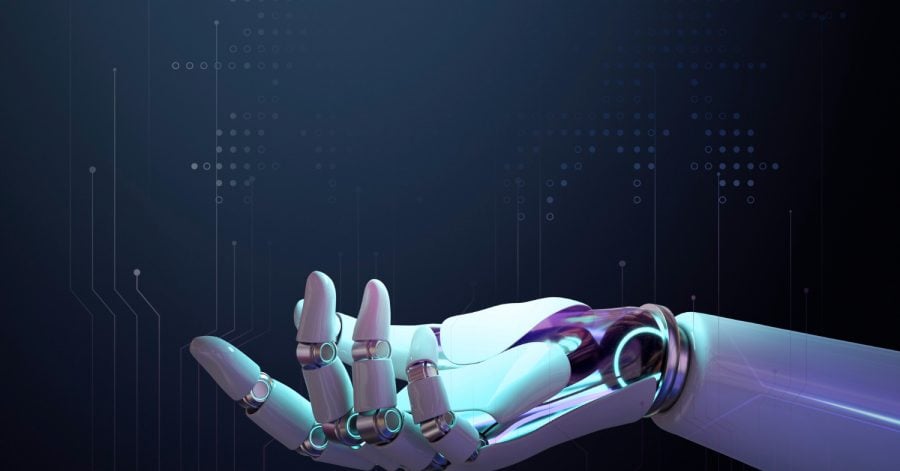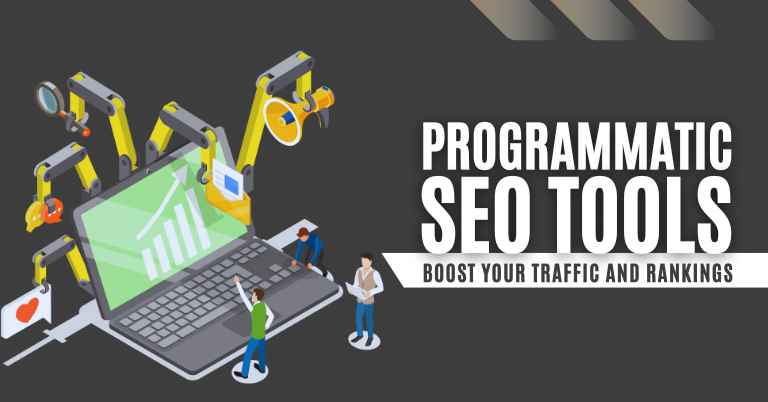Artificial intelligence (AI) is the development of computer systems that can perform tasks that typically require human intelligence. Examples of AI include virtual assistants like Siri and Alexa, self-driving cars, and facial recognition technology.
With the ability to analyze vast amounts of data and make decisions, AI is revolutionizing industries such as healthcare, finance, and manufacturing. As technology advances, AI continues to become more integrated into our daily lives, providing enhanced efficiency, accuracy, and convenience.
Let's See the Topic Overview
Understanding Artificial Intelligence
AI: Definition And Concept
Artificial intelligence, often abbreviated as AI, is a fascinating and rapidly advancing field in computer science. It refers to the development of machines and computer systems that are capable of performing tasks that typically require human intelligence. AI aims to create intelligent machines that can mimic human behavior, learn from experience, and make decisions based on data and algorithms.
Here are the key points to understand about artificial intelligence:
- AI involves the creation of intelligent machines that can simulate human intelligence in performing complex tasks.
- Machine learning is a crucial component of AI, enabling machines to learn from data and improve their performance over time.
- Natural language processing (NLP) allows machines to understand and interpret human language, enabling interactions between humans and machines.
- AI systems can exhibit traits such as problem-solving, perception, reasoning, learning, and even creativity.
- The ultimate goal of AI is to develop systems that can think, reason, learn, and make decisions, often referred to as ‘strong AI’ or ‘general AI.’
Evolution Of AI
The concept of AI has been around for decades, evolving and expanding as technology advances. Here are the key milestones in the evolution of AI:
- 1943: The field of AI begins with the development of electronic computers and the proposal of neural networks.
- 1956: The term “artificial intelligence” is coined, leading to the first AI conference at Dartmouth College.
- 1960s-1970s: AI research focuses on problem-solving and symbol manipulation, developing expert systems and rule-based approaches.
- 1980s-1990s: AI experiences a decline due to limited computational power, known as the “AIwinter.”
- 1997: Ibm’s Deep Blue defeats chess world champion Garry Kasparov, showcasing the potential of AI in specific domains.
- 2011: IBM’s Watson wins Jeopardy! Against human opponents, showcasing advancements in natural language processing and machine learning.
- Present: AI continues to advance rapidly, with breakthroughs in deep learning, neural networks, and the integration of AI in various industries.
Impact Of AI On Society
The growth of AI has had a significant impact on society, transforming various aspects of our lives. Here are the key impacts of AI on society:
- Automation: AI has led to the Automation of repetitive and mundane tasks, increasing efficiency and productivity in industries like manufacturing and customer support.
- Healthcare: AI is revolutionizing healthcare by enabling faster and more accurate diagnostics, personalized treatment plans, and drug discovery.
- Transportation: Self-driving cars and AI-driven traffic management systems have the potential to increase road safety and reduce traffic congestion.
- Communication: AI-powered virtual assistants and chatbots have improved customer service experiences and transformed how we interact with technology.
- Privacy and ethics: The proliferation of AI raises concerns about data privacy, algorithmic bias, job displacement, and ethical implications of AI decision-making.
AI is here to stay and has the potential to reshape various industries and aspects of our daily lives. With continued advancements and responsible implementation, AI can unlock new possibilities and drive positive change in society.
Types Of Artificial Intelligence
Artificial intelligence (AI) is a rapidly evolving field that aims to develop intelligent machines capable of performing tasks that typically require human intelligence. With advancements in technology, AI has become an integral part of various industries, transforming the way we live and work.
In this section, we will explore different types of artificial intelligence, each with its own capabilities and applications.
Narrow AI
Narrow AI, also known as weak AI, refers to AI systems that are designed to perform specific tasks with expertise. These systems are focused on a narrow domain and have a limited scope of application. Here are some key points about narrow AI:
- Narrow AI is the most prevalent form of AI in use today, encompassing various applications such as voice assistants, image recognition, and recommendation systems.
- These AI systems are designed to excel in a particular area but lack the ability to generalize knowledge and adapt to new situations.
- Examples of narrow AI include Apple’s Siri, amazon’s Alexa, and Tesla’s Autopilot. These technologies are highly specialized and perform specific tasks efficiently.
General AI
General AI, also referred to as strong AI or human-level AI, aims to exhibit the same level of intelligence as humans. Unlike narrow AI, general AI possesses the capability to understand, learn, and apply knowledge across various domains. Here are some key points about general AI:
- General AI strives to replicate human cognitive capabilities, including reasoning, problem-solving, and understanding natural language.
- Achieving general AI is the ultimate goal of many researchers, as it would revolutionize industries ranging from healthcare to transportation.
- Examples of general AI are mostly seen in science fiction movies, such as the sentient robots in the movie “ex machina” or the superintelligent AI system in “her.”
Superintelligent AI
Superintelligent AI refers to AI systems that surpass human intelligence in almost every aspect. These hypothetical systems possess cognitive abilities far beyond human comprehension and have the potential to outperform humans in any intellectual task. Here are some key points about superintelligent AI:
- Superintelligent AI represents the cutting edge of AI research, aiming to create machines that can outthink and outperform humans in every domain.
- The existence of superintelligent AI is speculative at present, with ongoing research and discussions centered around its implications and potential risks.
- Superintelligent AI, if successfully developed, could have significant applications in scientific research, global problem-solving, and even driving societal change.
Artificial intelligence is a diverse and ever-evolving field, with each type of ai serving different purposes and exhibiting distinct capabilities. While narrow AI is prevalent in various practical applications, general AI and superintelligent AI hold immense potential for future advancements and innovation.
As the field of AI continues to progress, it is crucial to explore and understand the different types to harness their benefits while addressing ethical considerations and the impact on society.
Applications Of Artificial Intelligence
Artificial intelligence has transformed the world we live in, revolutionizing various industries and enhancing the way we work. From healthcare to finance, transportation to customer service, manufacturing to education, AI has permeated every aspect of our lives. In this section, we will explore the applications of artificial intelligence in different sectors.
AI In Healthcare
- AI-powered virtual assistants can help doctors with documentation and administrative tasks, allowing them to focus more on patient care.
- Machine learning algorithms can analyze large volumes of medical data and identify patterns that humans may miss, aiding in disease diagnosis and treatment planning.
- Ai-enabled robotics can assist in delicate surgeries, improving precision and reducing the risk of human error.
- Chatbots that utilize AI can provide instant medical advice and support, enhancing accessibility to healthcare resources.
AI In Finance
- AI algorithms can accurately forecast market trends and make informed investment decisions, helping financial institutions maximize profits.
- Chatbots in banking can provide personalized customer support and answer common queries, reducing the need for human intervention.
- Fraud detection systems powered by AI can identify suspicious transactions and prevent potential financial crimes.
- AI-based algorithms can automate repetitive financial tasks such as data entry and report generation, saving valuable time for finance professionals.
Ai In Transportation
- Autonomous vehicles, guided by artificial intelligence, have the potential to decrease accidents and increase road safety.
- AI algorithms can optimize traffic flow by analyzing data from various sources and suggesting alternative routes to minimize congestion.
- AI is used in predictive maintenance of vehicles, helping identify potential issues before they become major problems.
- Intelligent transportation systems, driven by AI, can improve public transportation efficiency, leading to reduced commuting times and enhanced passenger experience.
AI In Customer Service
- AI-powered chatbots can provide instant customer support, answering queries and resolving issues without human intervention.
- Natural language processing (nlp) algorithms enable AI systems to understand and respond to customer inquiries in a more human-like manner.
- Ai-driven sentiment analysis helps organizations gauge consumer satisfaction and tailor their products or services accordingly.
- Virtual assistants powered by AI algorithms can assist customers with personalized recommendations and suggestions based on their preferences.
AI In Manufacturing
- Robotics powered by AI can automate complex manufacturing processes, improving efficiency and reducing production costs.
- AI algorithms can analyze production data and identify areas for optimization, enhancing quality control and minimizing defects.
- Predictive maintenance systems driven by AI can predict equipment failures, minimizing downtime and maximizing productivity.
- AI-enabled supply chain management can streamline inventory management, ensuring optimal stock levels and reducing wastage.
AI In Education
- AI-powered personalized learning platforms can adapt to individual students’ needs, helping them learn at their own pace.
- AI algorithms can automate grading, reducing the burden on teachers and providing timely feedback to students.
- Intelligent tutoring systems driven by AI can provide interactive and adaptive support, enhancing the learning experience.
- AI can analyze large amounts of educational data to identify trends and patterns, aiding in curriculum development and educational research.
As we can see, artificial intelligence has found applications in various sectors, revolutionizing the way we work, live, and interact. The potential of AI is vast, and as technology continues to advance, we can expect even more exciting developments on the horizon.
Real-Life Examples Of Artificial Intelligence
Artificial intelligence (AI) is revolutionizing the world we live in. From virtual assistants to autonomous vehicles, ai has become an integral part of our daily lives. Let’s explore some real-life examples of how ai is being used across various industries:
Virtual Assistants (E.G. Siri, Alexa, Google Assistant)
- Siri, alexa, and google assistant are AI-powered virtual assistants that can perform tasks and answer questions based on voice commands.
- These virtual assistants use natural language processing and machine learning algorithms to understand and respond to user queries.
- They can set reminders, provide weather updates, play music, control smart home devices, and even make online purchases.
Recommendation Systems (E.G. Netflix, Amazon)
- Netflix and amazon utilize AI-based recommendation systems to personalize content for their users.
- These systems analyze user preferences, viewing and purchase history, and behavioral patterns to suggest movies, tv shows, products, and services.
- By leveraging AI algorithms, these platforms improve user experience and engagement by offering tailored recommendations.
Autonomous Vehicles (E.G. Tesla)
- Tesla, a leading electric car manufacturer, is at the forefront of developing autonomous vehicles powered by AI.
- These vehicles use a combination of sensors, cameras, radar, and AI algorithms to navigate and drive without human intervention.
- AI enables self-driving capabilities by interpreting real-time data, analyzing road conditions, detecting obstacles, and making split-second decisions.
Fraud Detection (E.G. Credit Card Companies)
- Credit card companies employ AI-powered fraud detection systems to identify and prevent fraudulent transactions.
- These systems utilize machine learning algorithms to analyze patterns and anomalies in card usage, alerting the company to potential fraudulent activities.
- AI enables faster and more accurate detection, reducing financial loss and protecting consumers from fraudulent transactions.
Robotics (E.G. Boston Dynamics’ Spot, Roomba)
- Boston dynamics’ spot and roomba are examples of AI-driven robots that are transforming various industries.
- Spot, a quadruped robot, can navigate complex terrains, perform inspections, and assist in tasks like delivery or data collection.
- Roomba, a robotic vacuum cleaner, uses AI algorithms to map and navigate a room, avoiding obstacles and efficiently cleaning the area.
AI is making significant contributions in multiple domains. From virtual assistants and recommendation systems to autonomous vehicles, fraud detection, and robotics, these real-life examples demonstrate the immense potential of ai in improving efficiency, convenience, and safety in our daily lives.
Ethics And Challenges In Artificial Intelligence
Artificial intelligence (AI) has become an integral part of our daily lives, driving innovation in various industries. However, along with its advancements, there are certain ethical considerations and challenges that come into play. In this section, we will explore these aspects of ai and delve deeper into the key issues that need to be addressed.
Without further ado, let’s get started with the discussions on ethics and challenges in artificial intelligence.
Ethical Considerations In AI Development
- Transparency: Ensuring that AI systems are transparent and not operating as a ‘black box’ is crucial. Users should have visibility into how ai algorithms make decisions and understand the underlying factors influencing those decisions.
- Accountability: Developers and organizations must take responsibility for the outcomes of their AI systems. Having clear lines of accountability helps prevent misuse or unethical practices.
- Fairness: Bias within ai algorithms can lead to unjust and discriminatory outcomes. It is important to ensure that AI systems are fair and unbiased in their decision-making processes.
- Informed consent: When collecting and using user data, it is essential to obtain informed consent and respect individuals’ privacy rights. This includes being transparent about how data will be used and providing users with options to control their personal information.
Bias And Fairness In AI Algorithms
- Identifying biases: AI algorithms can unintentionally perpetuate biases present in the data they are trained on. Recognizing and addressing biases is critical to ensuring fair outcomes and preventing discrimination.
- Diverse representation: AI development should involve diverse teams to mitigate biases that may be present in the algorithms. This includes considering various perspectives, backgrounds, and experiences in the design and development process.
- Ongoing evaluation: Regularly assessing AI algorithms for fairness is essential. This involves monitoring and adjusting algorithms to prevent or minimize biases that may emerge over time.
Privacy And Security Concerns In AI
- Data protection: AI systems heavily rely on user data, which raises concerns about privacy. Stricter regulations and robust security measures are required to protect individuals’ personal information from misuse or unauthorized access.
- Data breaches: As AI systems handle large volumes of sensitive data, the risk of data breaches increases. It is crucial to implement robust security measures and encryption protocols to safeguard data from potential threats.
- Privacy by design: Incorporating privacy features into AI systems from their inception ensures that privacy rights are considered at every stage, minimizing the risks associated with data collection and usage.
Job Displacement And Societal Impact Of AI
- Automation and job loss: The increasing implementation of AI technologies can lead to job displacement and create concerns over unemployment. Preparing for the transition and providing retraining opportunities for affected individuals is vital.
- Economic inequality: AI’s impact on the labor market can exacerbate existing economic disparities. Steps need to be taken to ensure that the benefits of AI are distributed equitably and address potential inequalities that may arise.
- Social change: AI technologies have the potential to reshape societal norms and behaviors. Monitoring these changes and proactively addressing any negative impacts is crucial for maintaining a balanced and thriving society.
As ai continues to progress, addressing ethical considerations and challenges is of utmost importance. Striking a balance between technological advancements and responsible AI development will pave the way for a future where AI benefits everyone while upholding ethical values and societal well-being.
Future Of Artificial Intelligence
The Future Of Artificial Intelligence
Artificial intelligence (AI) has come a long way in recent years, and its rapid advancements and breakthroughs in research are paving the way for an exciting future. The potential risks and benefits of AI in the coming years are a topic of great interest, along with the impact it will have on various industries.
Let’s delve deeper into these aspects to gain a better understanding of what the future holds for AI.
Advancements And Breakthroughs In AI Research
AI research continues to push boundaries and achieve remarkable advancements. Some key points to consider in this field include:
- Deep learning: The development of deep learning algorithms has revolutionized ai research. These powerful algorithms can analyze vast amounts of data and extract meaningful insights, enabling machines to perform tasks that were once considered impossible.
- Natural language processing (NLP): NLP techniques have seen substantial progress, allowing machines to understand and generate human-like language. This breakthrough has opened up new possibilities for voice assistants, chatbots, and language translation systems.
- Reinforcement learning: The application of reinforcement learning has shown impressive results in various domains, such as game playing and robotic control. This approach allows machines to learn from trial and error and improve their performance over time.
Potential Risks And Benefits Of AI In The Future
As AI becomes more pervasive in our lives, it is crucial to weigh the potential risks and benefits it brings. Consider the following points:
- Risks:
- Job displacement: AI’s advancement may lead to automation and job displacement in certain industries. It is vital to address this issue by reskilling and upskilling the workforce to adapt to the changing job landscape.
- Ethical concerns: AI applications raise ethical concerns, including privacy, bias, and accountability. Striking a balance between innovation and ethical considerations is crucial to prevent unintended consequences.
- Benefits:
- Healthcare advancements: AI has the potential to revolutionize healthcare by improving diagnostics, personalized medicine, and drug discovery. AI-powered systems can analyze medical data more efficiently, leading to better patient outcomes.
- Enhanced efficiency: AI-driven automation can increase efficiency in industries like manufacturing, logistics, and customer service. It can optimize processes, reduce errors, and enhance productivity.
- Smarter decision-making: AI can aid decision-making in various fields, such as finance, marketing, and cybersecurity, by analyzing vast amounts of data and providing valuable insights.
AI-Driven Innovation And Its Impact On Various Industries
The impact of AI-driven innovation extends to various industries, creating new opportunities and transforming existing practices. Consider the following points:
- Healthcare: AI is poised to revolutionize healthcare by assisting in disease diagnosis, drug development, and personalized treatment plans. It can analyze medical images, genetic data, and patient records to improve accuracy and efficiency in healthcare delivery.
- Finance: AI-powered algorithms can analyze financial data in real-time, aiding in fraud detection, risk assessment, and automated trading. It can also enhance customer experience through chatbots and personalized financial advice.
- Autonomous vehicles: AI enables self-driving cars to perceive their environment, make real-time decisions, and navigate safely. This technology has the potential to reshape transportation, making it safer and more efficient.
- Education: AI can personalize learning experiences, providing tailored content and assessments to students based on their individual needs. It can also assist teachers in administrative tasks and grading.
- Retail: AI-powered recommendation systems can analyze customer preferences and behavior, enabling personalized shopping experiences. It can also optimize inventory management and supply chain operations.
The future of AI holds tremendous potential for advancements, breakthroughs, and transformative impact across industries. While there are risks to address, the benefits that AI brings, including enhanced efficiency, improved healthcare, and smarter decision-making, are vast. As AI continues to evolve, it is crucial to navigate the future responsibly, ensuring that the benefits are harnessed while mitigating potential risks.
Frequently Asked Questions
What Is Artificial Intelligence?
Artificial intelligence (AI) refers to the simulation of human intelligence in machines that are programmed to think and learn like humans. It involves machines being able to perform tasks that typically require human intelligence, such as speech recognition, decision-making, and problem-solving.
Why Is Artificial Intelligence Important?
Artificial intelligence is important because it has the potential to revolutionize various industries and improve efficiency. With AI, machines can analyze vast amounts of data, make predictions, automate processes, and enhance decision-making. This can lead to advancements in healthcare, transportation, finance, and many other sectors.
What Are Some Examples Of Artificial Intelligence?
There are many examples of artificial intelligence in our daily lives. Some popular ones include virtual assistants like Siri and Alexa, recommendation systems used by streaming platforms, autonomous vehicles, fraud detection systems in banking, and facial recognition technology used for security purposes.
How Is Artificial Intelligence Changing The World?
Artificial intelligence is changing the world by creating new opportunities and transforming various aspects of society. It has the potential to revolutionize healthcare by improving diagnostics and treatment options. It can enhance transportation by enabling autonomous vehicles. AI-powered chatbots are improving customer service experiences.
Overall, AI has the potential to make our lives easier and more efficient.
Are There Any Ethical Concerns About Artificial Intelligence?
Yes, there are ethical concerns about artificial intelligence. These include issues such as privacy and data security, bias in algorithms, potential job displacement, and the ethical implications of AI in warfare. It is important for organizations and governments to address these concerns and ensure that AI is developed and used responsibly.
Conclusion
Artificial intelligence, as we have seen in this blog post, is a transformative technology that has the potential to revolutionize various industries. With examples such as virtual personal assistants, smart home devices, and autonomous vehicles, AI is already making our lives easier and more efficient.
It enables machines to learn, reason, and problem-solve like humans, leading to advanced technologies like deep learning and natural language processing. The impact of AI is far-reaching, from enhancing productivity to improving customer experiences. As the field continues to evolve, we can expect even more impressive developments in the future.
However, it’s important to consider the ethical implications and ensure that AI is used responsibly and in a manner that benefits society as a whole. Ultimately, artificial intelligence is not just a buzzword; it is a powerful tool that holds immense potential for shaping the world we live in and the way we interact with technology.












